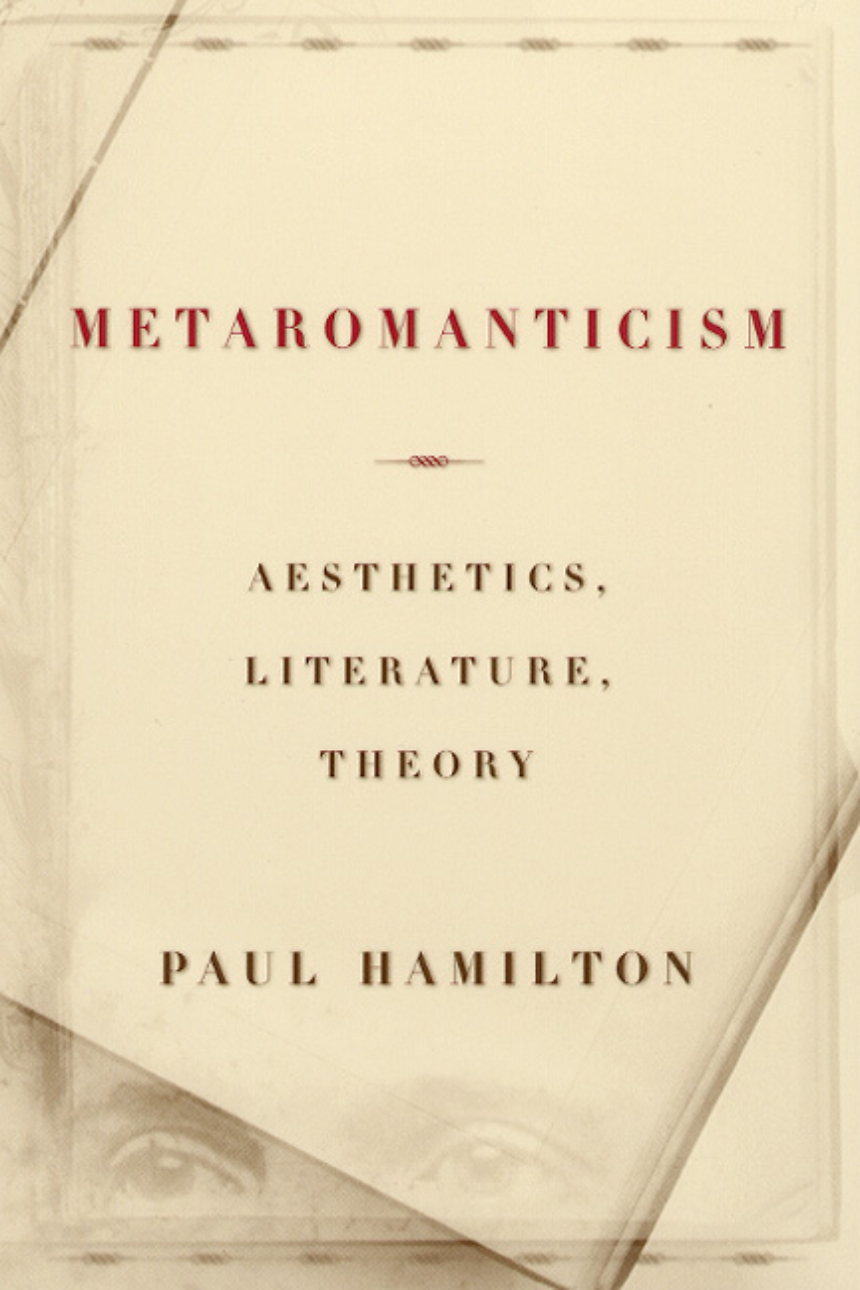Metaromanticism
Aesthetics, Literature, Theory
This bracing study redefines romanticism in terms of its philosophical habits of self-consciousness. According to Paul Hamilton, metaromanticism, or the ways in which writers of the romantic period generalized their own practices, was fundamentally characteristic of the romantic project itself.
Through a close look at the aesthetics of Friedrich Schiller and Jean-Jacques Rousseau, and key works by Samuel Taylor Coleridge, Percy and Mary Shelley, John Keats, Sir Walter Scott, Jane Austen, and many others, Hamilton shows how the romantic movement’s struggle with its own tenets was not an effort to seek an alternative way of thought, but instead a way of becoming what it already was. And yet, as he reveals, the romanticists were still not content with their own self-consciousness. Pushed to the limit, such contemplation either manifested itself as self-disgust or found aesthetic ideas regenerated in discourses outside of aesthetics altogether.
Through a close look at the aesthetics of Friedrich Schiller and Jean-Jacques Rousseau, and key works by Samuel Taylor Coleridge, Percy and Mary Shelley, John Keats, Sir Walter Scott, Jane Austen, and many others, Hamilton shows how the romantic movement’s struggle with its own tenets was not an effort to seek an alternative way of thought, but instead a way of becoming what it already was. And yet, as he reveals, the romanticists were still not content with their own self-consciousness. Pushed to the limit, such contemplation either manifested itself as self-disgust or found aesthetic ideas regenerated in discourses outside of aesthetics altogether.
Table of Contents
Acknowledgments
Introduction: Metaromanticism
Part One: Aesthetics
1. Schiller’s Temporizing
2. Rousseau’s Children
Part Two: Literature
3. Politics in Reserve: Coleridge and Godwin
4. Keats and Critique
5. Waverley: Scott’s Romantic Narrative and Revolutionary Historiography
6. A French Connection: The Shelleys’ Materialism
7. Jane Austen’s Conservatism
8. Romantic Patriotism: Marvell’s Romantics
Part Three: Theory
9. The Romanticism of Contemporary Ideology
10. The New Romanticism: Philosophical Stand-ins in English Romantic Discourse
11. Sublimity to Indeterminacy: Dreams of a New World Order
12. Romantic Republicanism and Multicultural Progress
Notes
Index
Introduction: Metaromanticism
Part One: Aesthetics
1. Schiller’s Temporizing
2. Rousseau’s Children
Part Two: Literature
3. Politics in Reserve: Coleridge and Godwin
4. Keats and Critique
5. Waverley: Scott’s Romantic Narrative and Revolutionary Historiography
6. A French Connection: The Shelleys’ Materialism
7. Jane Austen’s Conservatism
8. Romantic Patriotism: Marvell’s Romantics
Part Three: Theory
9. The Romanticism of Contemporary Ideology
10. The New Romanticism: Philosophical Stand-ins in English Romantic Discourse
11. Sublimity to Indeterminacy: Dreams of a New World Order
12. Romantic Republicanism and Multicultural Progress
Notes
Index
